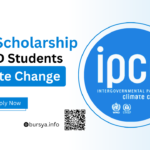UNESCO IFCD-International Fund for Cultural Diversity 2025 ($100,000 Funding)
The UNESCO International Fund for Cultural Diversity (IFCD) 2025 aims to support cultural and creative industries (CCIs) in developing countries, fostering cultural diversity, policy development, and economic opportunities. Established under UNESCO’s 2005 Convention, IFCD funds innovative projects in cinema, performing arts, media, design, music, and publishing. The program promotes inclusion, economic growth, and social change by investing in artists, cultural entrepreneurs, and marginalized communities.
Since 2010, IFCD has contributed $12.6 million to 164 projects across 76 countries, supporting skills development, market access, and cultural policy reforms. The grant is open to public authorities, institutions, Non-Governmental Organizations (NGOs), and International Non-Governmental Organizations (INGOs) aiming to strengthen the global cultural sector.
Brief Details
- Grant Name: UNESCO International Fund for Cultural Diversity (IFCD)
- Organizer: United Nations Educational, Scientific, and Cultural Organization (UNESCO)
- Focus Areas: Cultural diversity, creative industries, policy development
- Project Location: Varies based on project implementation
- Funding Type: Grant
- Application Deadline: May 21, 2025 (noon, Paris time)
- Result Announcement Dates: February 2026
- Project Start Date: April 2026 (earliest)
- Eligible Countries: Developing countries (listed below)
- Target Group: Public authorities, institutions, NGOs, and INGOs
- Duration: 12 to 24 months
- Medium of Instruction: English or French
Benefits
Selected projects will receive up to $100,000 in funding for:
- Policy-making and capacity-building
- Enhancing market access for cultural goods and services
- Developing the creative economy
- Promoting gender equality and engaging marginalized communities
- Supporting digital transformation in cultural industries
The grant is disbursed in multiple installments:
- 50% at project start
- 30% midway through the project
- 20% upon completion
Eligibility Criteria
The following entities are eligible:
- Public authorities and institutions from eligible developing countries
- NGOs from eligible developing countries
- INGOs registered in 2005 Convention Party countries with regional or sub-regional impact
Eligible Countries
The IFCD supports projects in various developing countries, including Afghanistan, Argentina, Bangladesh, Brazil, Egypt, India, Kenya, Mexico, Nigeria, Pakistan, South Africa, and Vietnam. A full list is available on UNESCO’s official website.
Eligible and Ineligible Projects
Funded Projects:
- Cultural policy and legal framework development
- Strengthening civil society’s role in cultural policies
- Institutional capacity-building in creative industries
- Market access for cultural goods and services
- Promoting gender equality and minority inclusion in cultural sectors
- Digital transformation of cultural industries
Not Funded Projects:
- Solely artistic or cultural production
- Safeguarding tangible and intangible cultural heritage
- Construction/restoration of buildings
- Debt or deficit-related projects
- Individual scholarships and grants
- Cultural tourism-related initiatives
- Projects with recurring operational costs
Required Documents
Applicants must submit:
- Proof of legal status (public institutions, NGOs, or INGOs)
- Letters of support from government authorities (for INGOs)
- Evidence of international activities (for INGOs)
- Pro forma invoice (if budget includes equipment and supplies) (for all applicants)
- Letters of support from implementing partners (if applicable) (for all applicants)
Selection Process
The selection follows five stages:
- National Pre-Selection (by July 7, 2025): National Commissions review applications for alignment with national priorities and pre-select up to four applications.
- Technical Assessment (UNESCO Secretariat): Applications are screened for completeness and IFCD criteria.
- Expert Evaluation (January 2026): Two independent UNESCO experts review each application.
- Final Decision (February 2026): The Intergovernmental Committee makes funding decisions at its session in Paris (February 17-20, 2026).
- Notification & Contracting: Successful applicants receive funding contracts and project implementation guidelines.
Evaluation Criteria
Applications are assessed on:
- Alignment with IFCD objectives and cultural sector impact
- Feasibility, relevance, and structural transformation potential
- Promotion of international cooperation (South-South, North-South-South)
- Support for UNESCO priorities (Africa, Gender Equality, Small Island Developing States, and youth)
- Long-term sustainability and financial accountability
- Competence of project personnel and stakeholder involvement
How to Apply?
- Review the official Call for Funding guidelines.
- Create an account and log in to the UNESCO online platform.
- Download and complete the Project Framework Form.
- Gather the required documents and supporting materials.
- Apply online before May 21, 2025.
- Await technical assessment and selection results in February 2026.
Useful Links
Contact Information
For further details, review the relevant call or visit the official UNESCO website: UNESCO IFCD Website.
About UNESCO
UNESCO is a specialized UN agency promoting global peace and security through cooperation in education, sciences, culture, and communication. Founded in 1945 after World War II, it has 194 member states, 12 associate members, and numerous global partners. Headquartered in Paris, it operates 53 regional offices and 199 national commissions.
UNESCO advances its mission through five key areas: education, natural sciences, social/human sciences, culture, and communication. It supports literacy, scientific research, press freedom, and cultural heritage preservation, including World Heritage Sites. A General Conference, an executive board, and a Director-General lead governance.
Its roots trace back to a 1921 League of Nations initiative for intellectual cooperation. After World War II, discussions at the 1945 London Conference led to UNESCO’s formal establishment. The first General Conference in 1946 elected Julian Huxley as its first Director-General. Over time, UNESCO evolved amid global political changes, including the Cold War and decolonization. Further details and information are available on the official UNESCO website.




